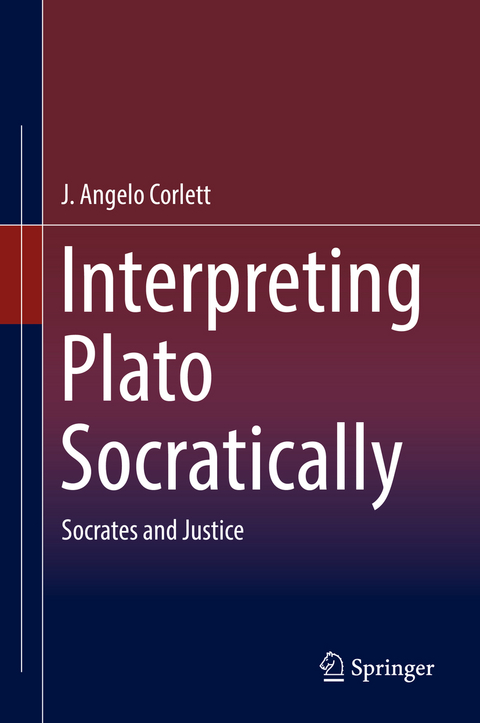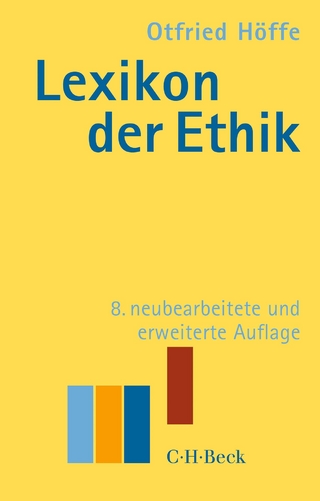
Interpreting Plato Socratically
Springer International Publishing (Verlag)
978-3-319-77319-3 (ISBN)
J. Angelo Corlett's new book, Interpreting Plato Socratically continues the critical discussion of the Platonic Question where Corlett's book, Interpreting Plato's Dialogues concluded. New arguments in favor of the Mouthpiece Interpretation of Plato's works are considered and shown to be fallacious, as are new objections to some competing approaches to Plato's works.
The Platonic Question is the problem of how to approach and interpret Plato's writings most of which are dialogues. How, if at all, can Plato's beliefs, doctrines, theories and such be extracted from dialogues where there is no direct indication from Plato that his own views are even to be found therein? Most philosophers of Plato attempt to decipher from Plato's texts seemingly all manner of ideas expressed by Socrates which they then attribute to Plato. They seek to ascribe to Plato particular views about justice, art, love, virtue, knowledge, and the like because, they believe, Socrates is Plato's mouthpiece through the dialogues. But is such an approach justified? What are the arguments in favor of such an approach? Is there a viable alternative approach to Plato's dialogues?
In this rigorous account of the dominant approach to Plato's dialogues, there is no room left for reasonable doubt about the problematic reasons given for the notion that Plato's dialogues reveal either Plato's or Socrates' beliefs, doctrines or theories about substantive philosophical matters.
Corlett's approach to Plato's dialogues is applied to a variety of passages throughout Plato's works on a wide range of topics concerning justice. In-depth discussions of themes such as legal obligation, punishment and compensatory justice are clarified and with some surprising results. Plato's works serve as a rich source of philosophical thinking about such matters.
J. J. Mulhern, University of Pennsylvania
J. Angelo Corlett, PhD, serves as Professor of Philosophy and Ethics at San Diego State University. He is the author of more than 100 books and articles in philosophy and ethics, including the books: Analyzing Social Knowledge (Rowman & Littlefield Publishers: 1996); Responsibility and Punishment (Kluwer and Springer: 2001, 2003, 2009 and 2014); Terrorism: A Philosophical Analysis (Kluwer: 2003); Race, Racism, and Reparations (Cornell University Press: 2003); Interpreting Plato's Dialogues (Parmenides: 2005); Race, Rights, and Justice (Springer: 2009); The Errors of Atheism (Continuum: 2010); Heirs of Oppression (Rowman & Littlefield Publishers: 2010). Many of his articles has been published in leading philosophy journals, including the American Philosophical Quarterly; Analysis; The Classical Quarterly; International Journal for the Philosophy of Religion; Journal of Social Philosophy; The Journal of Ethics: An International Philosophical Review; Journal of Medicine and Philosophy; Philosophy, among others. He is also the founding Editor-in-Chief of The Journal of Ethics: An International Philosophical Review (1995-present).
Preface.- Introduction,- Chapter 1: Interpreting Plato Socratically,- Chapter 2: Defending The Socratic Interpretation of Plato's Dialogues.- Chapter 3: In Defense of Socratic Studies.- Chapter 4: Socrates and Distributive Justice.- Chapter 5: Legal Obligation in Plato's Crito.- Chapter 6: The Socratic Roots of Retributivism.- Chapter 7: Socrates and Compensatory Justice.- Conclusion.- Appendix I: Gerson on Cherniss On Aristotle On Plato.- Appendix II: The Concept of Art of Mimêsis in Plato's Dialogues.- additional Bibliography.- Index.
| Erscheinungsdatum | 06.05.2018 |
|---|---|
| Zusatzinfo | XV, 243 p. |
| Verlagsort | Cham |
| Sprache | englisch |
| Maße | 155 x 235 mm |
| Gewicht | 555 g |
| Themenwelt | Geisteswissenschaften ► Philosophie ► Allgemeines / Lexika |
| Geisteswissenschaften ► Philosophie ► Geschichte der Philosophie | |
| Geisteswissenschaften ► Philosophie ► Philosophie Altertum / Antike | |
| Geisteswissenschaften ► Philosophie ► Philosophie der Neuzeit | |
| Geisteswissenschaften ► Sprach- / Literaturwissenschaft ► Literaturwissenschaft | |
| Schlagworte | Aristotle • Compensatory justice • distributive justice • Freedom, equality and rights • Harold Cherniss • History of punishment theories • Interpreting Plato's Dialogues • Interpreting Plato’s Dialogues • Legal Obligation • Legal Obligation in Plato's Crito • Legal Obligation in Plato’s Crito • Lloyd Gerson • Mouthpiece interpretation • Nicholas D. Smith • Plato • Socrates • Socrates and Justice • Socratic Anti-Mouthpiece Interpretation • Socratic Interpretation of Plato's works • Socratic Interpretation of Plato’s works • Socratic Roots of Retributivism • Thomas C. Brickhouse |
| ISBN-10 | 3-319-77319-4 / 3319773194 |
| ISBN-13 | 978-3-319-77319-3 / 9783319773193 |
| Zustand | Neuware |
| Haben Sie eine Frage zum Produkt? |
aus dem Bereich


